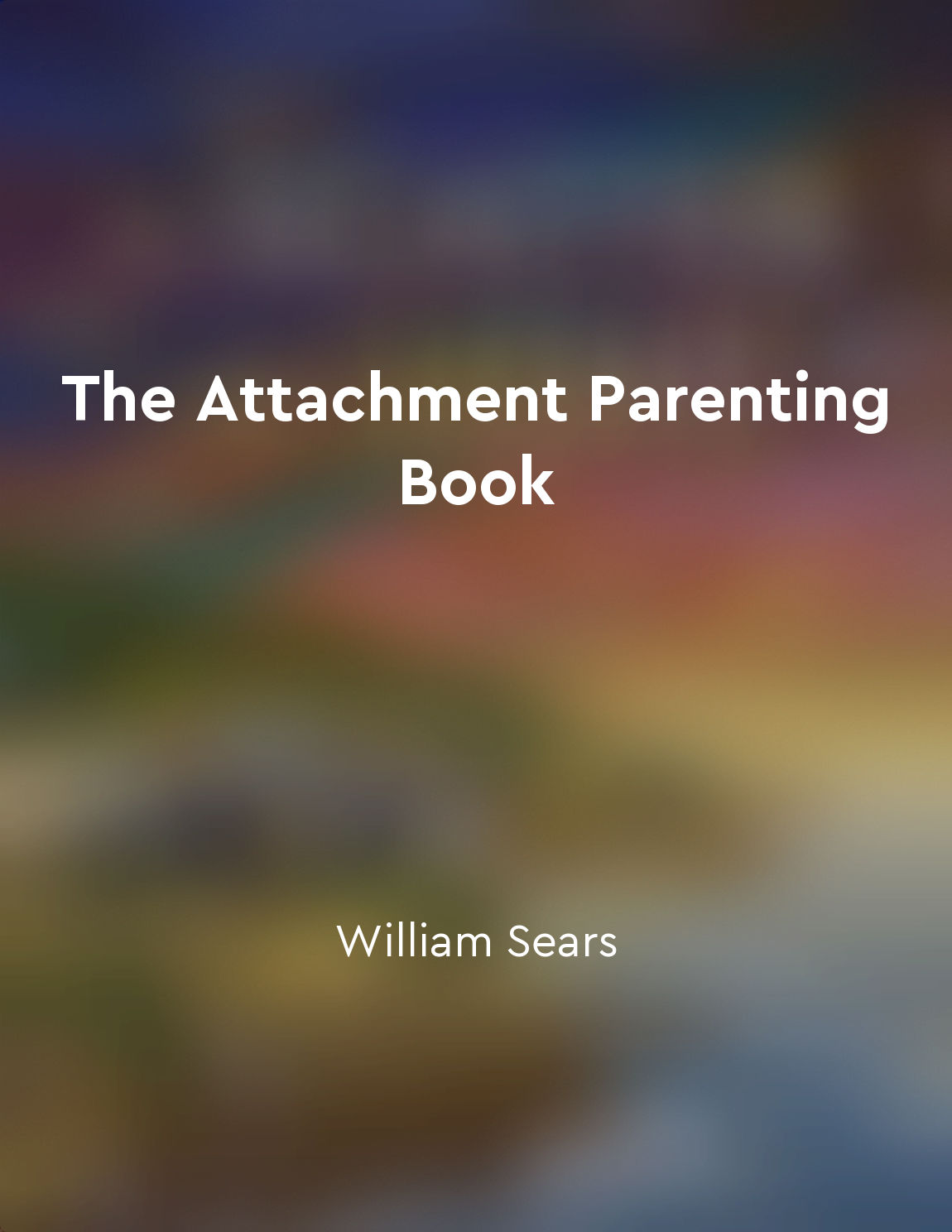Be present and attentive to your child from "summary" of The Attachment Parenting Book by William Sears,Martha Sears
To truly connect with your child and build a strong attachment, you must be present and attentive. This means giving your child your full focus and being in the moment with them. When you are present, you are tuned in to your child's needs and emotions, allowing you to respond effectively and nurture a secure attachment. Being present and attentive requires setting aside distractions and dedicating quality time to your child. Put down your phone, turn off the TV, and engage with your child in meaningful ways. Show them that they have your undivided attention and that you are there for them. One way to be present and attentive is through active listening. When your child speaks, listen with empathy and understanding. Reflect back what they are saying to show that you are truly hearing them. This kind of attentive listening can strengthen your bond and help your child feel valued and understood. Another important aspect of being present a...Similar Posts
Consistent routines and boundaries help children feel secure
Children thrive on predictability and structure. When they know what to expect, it helps them feel safe and secure in their env...
Encouraging a sense of purpose and meaning
Encouraging a sense of purpose and meaning in our children is essential for their overall well-being and development. When chil...

Meeting children's needs strengthens the parentchild bond
When parents meet their children's needs, they are showing them that they care deeply about them. This act of love and attentio...
Foster a sense of agency
The idea of fostering a sense of agency is crucial when it comes to helping children become self-driven individuals. Agency is ...

Foster a sense of responsibility
The concept of fostering a sense of responsibility in children is crucial for their development. When we talk about responsibil...
Pregnancy is a unique and transformative experience
Pregnancy is indeed an extraordinary journey that brings about profound changes, both physically and emotionally. It is a time ...
Nonverbal signals can be misinterpreted, leading to misunderstandings
Nonverbal signals play a crucial role in our everyday interactions. They are often more powerful than words in conveying our th...
Use "UhOh" moments as learning opportunities
When little ones make mistakes, we often feel the urge to swoop in and fix things for them. We want to shield them from any pot...
Encouraging cooperation and teamwork can strengthen sibling bonds
When siblings work together towards a common goal, something magical happens. They learn to appreciate each other's strengths a...
Trust in your toddler's abilities and potential
When we trust in our toddler's abilities and potential, we are acknowledging their capability to learn and grow at their own pa...

